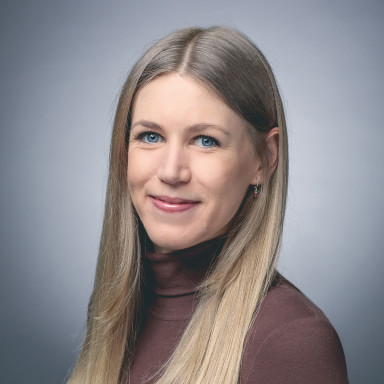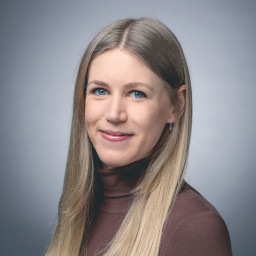- Daniel Roberts is a highly experienced income investor and uses a clear and effective process
- A global equity income fund with a valuation focus, which could work well alongside US-dominated or global growth funds
- Global income funds have struggled in recent years, though they have done well more recently, and this fund’s long-term performance has been strong
- This fund features on our Wealth Shortlist of funds chosen by our analysts for their long-term performance potential
How it fits in a portfolio
The Fidelity Global Dividend fund aims to deliver long-term income and growth, with a focus on providing some shelter in weaker markets. Daniel Roberts’ unconstrained investment approach allows him to invest anywhere in the world, but he tends to favour large companies from developed markets. He won’t compromise on quality and is mindful of valuation – how much a company’s share price should be compared with its prospects. The fund could provide international diversification to an income-focused investment portfolio and work well alongside ‘growth’ orientated funds.
Manager
Daniel Roberts is a seasoned investor with almost 20 years of experience under his belt. Prior to joining Fidelity in 2011, he worked at Gartmore and Aviva Investors running UK and European income funds. He has managed this fund since launch in January 2012, looking for the same type of companies as his previous funds but with a much richer hunting ground, the whole world.
Roberts stepped down from managing the Fidelity Global Enhanced Income fund on 30 April 2022, which means he can dedicate his time to the Global Dividend fund. Fred Sykes and Jochen Breuer, who were appointed co-managers of Global Enhanced Income in April 2021, will continue to run the fund using the existing investment process.
Roberts is the sole manager of this fund and carries out a lot of his own analysis, but he can make use of the large pool of Fidelity analysts available to him, totalling over 160 globally. He also benefits from the idea sharing and challenge provided by Fidelity’s Equity Income team.
Process
Roberts entered the investment industry around the time of the Dot-com crash, so he’s seen first-hand the risk of companies’ share prices rising too far without enough earnings growth support, making them ‘overvalued’. It means he pays close attention to valuations and makes sure he doesn’t buy shares at a price above the company’s future growth potential.
Roberts’ approach focuses on individual company analysis, paying close attention to their financial accounts to ensure the company dividends are sustainable. He also assesses how a company has fared during different market conditions, looking to identify predictable revenue streams and resilience. The manager favours companies with simple business models, sensible management teams and healthy balance sheets whilst avoiding companies with too much debt.
The process whittles down a universe of 3,000 companies to a portfolio of between 40-60 holdings. These tend to be larger companies, at a size of $5bn and above. While the manager can invest in higher-risk smaller companies, he tends not to make use of this flexibility. European companies make up around 40% of the fund, which includes exposure to areas like the UK, Switzerland, and Germany. Just under a third is invested in the US, but this is much less than the benchmark. Roberts also invests in higher-risk emerging markets. There’s a broad range of themes in the fund with a focus on more defensive sectors like consumer staples and pharmaceuticals.
Roberts focuses on the long-term sustainability and growth of dividends, rather than high dividends now that may not grow further or be cut. This means there is no minimum yield requirement for any single investment and the manager invests in some companies with a yield lower than the market if there’s an expectation it will grow over time. The manager targets a yield of at least 25% more than the benchmark’s yield.
Recent investments include French manufacturing company, Saint-Gobain. Roberts believes its current share price doesn’t reflect the underlying improvements made by its management team. Packaging Corporation of America is another recent addition and one of the leading players in the containerboard market. With robust financial health, Roberts is positive on the company’s outlook. In contrast, Pfizer, one of the Covid-19 vaccine producers, was sold after its valuation reached a point that Roberts no longer felt was justified. Other sales included semiconductor manufacturing company KLA Corporation and pharmaceutical company, GlaxoSmithKline.
Please note charges can be taken from capital, which can increase the yield but reduces the potential for capital growth. Roberts has the flexibility to use derivatives in this fund, which adds risk if used.
Culture
Fidelity was founded in 1969 and is a global investment manager. The company remains privately owned, meaning its managers can focus on the long-term interests of investors rather than short-term shareholder demands. That’s helped the firm develop an investment-focused culture, where investment ideas are openly discussed and debated, and information is shared amongst the firm’s various teams.
The company's scale means investment teams are well-resourced and fund managers are well-incentivised. We think it's positive that all Fidelity fund managers are incentivised based on the longer-term performance of their funds. We think this aligns their interests with those of investors.
ESG integration
Fidelity has worked hard to encourage its fund managers to integrate Environmental, Social and Governance (ESG) analysis into their investment processes in recent years. Managers have access to the firm’s proprietary ESG ratings tool and a bank of analysts with ESG expertise. That said, we think ESG integration is a work in progress at Fidelity and some managers don’t implement ESG as systematically as others. Roberts has always placed high emphasis on governance, but he began integrating environmental and social considerations more recently.
Fidelity has also bolstered its dedicated ESG team, which writes regular ESG reports on companies held by Fidelity fund managers. The firm votes where it is possible to do so and quarterly voting reports are posted online, complete with rationales for votes against management and abstentions.
While Fidelity has made strides forward at the firm level, we don’t think this has fully fed through to the fund level. While there is plenty of ESG information available to all Fidelity fund managers, we’re not yet convinced they all put it to full use.
Cost
The fund is available for an annual ongoing charge of 0.93% which puts it in the middle of the pack when compared with other funds in the IA Global Equity Income sector. The HL platform fee of up to 0.45% per year also applies.
Performance
The fund has performed better than the average fund in the IA Global Equity Income sector since launch in 2012, growing 190.50%* compared with 150.36% for the sector. Our analysis suggests this is down to Roberts’ stock picking ability and being exposed to the right regions. Remember past performance is not a guide to future returns.
In recent years, global equity income funds haven’t tended to perform as well as the broader global market. The US market, the technology sector, as well as other high-growth areas have performed well. These areas don’t pay much in the way of dividends though, so many global income funds don’t have as much invested and have missed out on some of the gains made.
Over the past year the fund returned 8.07% compared with 12.29% for the sector average. The fund’s focus on more defensive areas of the market held back performance, however, Roberts’ conservative approach and focus on high-quality companies means the fund performs differently to its peers at times. Historically, it’s performed better than peers in falling markets, but has tended to marginally lag them in a rising market and not owning companies that are highly sensitive to economic conditions has hindered short-term performance.
So far this year, ‘value’ companies have performed better – these are businesses that have often been shunned by investors and whose shares may look ‘cheap’ compared with the companies’ prospects. The fund’s investments in the financials sector have benefited from this trend, including German stock exchange group Deutsche Börse and insurers Zurich and Progressive Company. On the other hand, European capital goods companies Sandvik, Legrand and Schneider Electric haven’t performed as well.
Over the longer term we believe this fund benefits from a well-resourced manager with the potential to deliver good returns for investors, but this isn’t guaranteed. The manager has a good record of growing the fund’s income over time, and it currently yields 2.49% but remember income is variable and can change over time. Yields are not a reliable indicator of future income.
| Annual percentage growth | |||||
|---|---|---|---|---|---|
| Mar 17 -
Mar 18 |
Mar 18 -
Mar 19 |
Mar 19 -
Mar 20 |
Mar 20 -
Mar 21 |
Mar 21 -
Mar 22 |
|
| Fidelity Global Dividend | -4.54% | 15.27% | 1.51% | 21.41% | 8.07% |
| IA Global Equity Income | -1.17% | 8.44% | -9.21% | 32.77% | 12.29% |
Past performance is not a guide to the future. Source: *Lipper IM to 31/03/2022.
Find out more about Fidelity Global Dividend including charges
Fidelity Global Dividend Key Investor Information
Want our latest research sent direct to your inbox?
Our expert research team provide regular updates on a wide range of funds.

